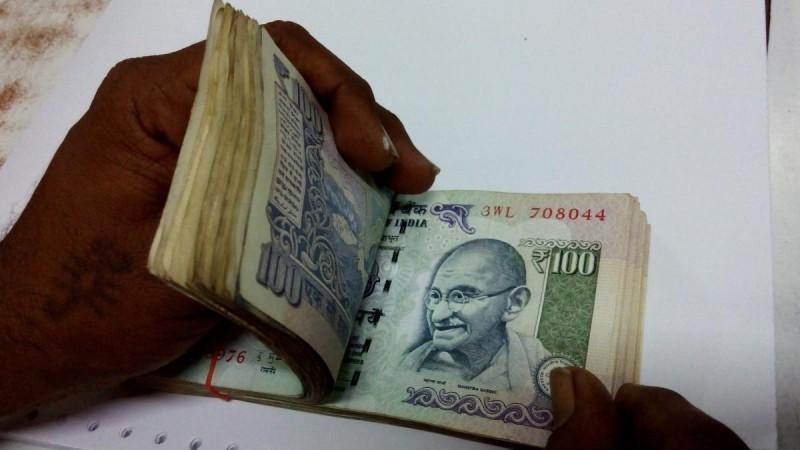An order issued by the labour department on May 9 stated, "It has been observed that in view of the emergent economic situation arising out of Covid-19, it may not be appropriate at this stage to raise the minimum wages in the State. The letter as issued on 1 May 2020 stands withdrawn with immediate effect and a further decision is kept in abeyance."

However, the state of Punjab had hiked the dearness allowance component of the minimum wage by over 4 per cent on May 1, from the current 17% to 21%. "The dearness allowance is linked to the consumer price index. For unskilled workers, the monthly minimum wage in Punjab was hiked from Rs 8,776 to Rs 9,178 from 1 April 2020 for a period of six months," Business Standard reports.
The Karnataka government is following suit by withdrawing its decision to hike the variable dearness allowance for private-sector workers. At this stage, a hike in minimum wages of workers would put financial pressure on employers and companies, who are already stressed economically with Covid-19 impact.
The Central government and most states in India hike the variable dearness allowance component of the minimum wage for various types of employment two times in a year, which is applicable for six months each.
Hike in minimum wage levels across states
The variable dearness allowance component of the minimum wage for various sectors regulated by the Central Government was hiked to include civil aviation, ports, railways, central public sector units and banking effective from April 1. Post the hike, the minimum monthly wage for unskilled workers in the central government undertakings stood at Rs 9,412.
Besides the Centre, at least nine states to include Goa, Gujarat, Uttar Pradesh, Uttarakhand, Madhya Pradesh, Bihar, Chhattisgarh, Tamil Nadu, and Karnataka have increased the variable DA from April 1. Maharashtra and West Bengal have already hiked minimum wage effective January 1, 2020.
With states enjoying the power to fix minimum wages of skilled labour, the minimum wage levels range from around Rs 1,400 to Rs 14,000 a month. There are over 2,000 variants of such wage levels across the country, depending upon skills, occupation and location. The Kerala state government is considering deferring 6 days' salary of all state government employees for a period of 6 months to tide over the economic crisis.
![[Representational image] Salary](https://data1.ibtimes.co.in/en/full/634974/salary.jpg?h=450&l=50&t=40)
As per the current wages law, it is applicable to 13 most vulnerable categories of employment. Hence only about 40 per cent of the workforce is covered under the minimum wage law formed in August 2019 that aims to protect the minimum wage workers. The central government is, however, yet to make the law applicable.
Centre revises its decision on DA and DR hike
With economic crisis stemming from the new coronavirus pandemic and nationwide lockdown stalling business activity, the government has reversed its decision on dearness allowance hike by 4 per cent from the current 17 per cent of the basic pay and pension to 48.34 lakh central government employees and 65.26 lakh pensioners. This move would have cost the government Rs 14,595 crore in 2020-21, to include payments from January 2020 to February 2021, and Rs 12,510 crore subsequently every year.
To help manage funds to fight the Covid-19 pandemic, the Centre imposed caps on ministries spending and department expenditure. Also, an ordinance has been passed to cut salaries of all ministers and members of Parliament by 30 per cent for a year, and temporarily suspend allocation to the Members of Parliament Local Area Development Scheme, a news report stated.
The department of expenditure, an arm of the finance ministry issued a freeze on a hike of the dearness allowance (DA) payments to central government employees and dearness relief (DR) to pensioners until July 2021. This move proposed by the government for the next 18 months will help save about Rs 1.20 lakh crore funds to help fight the raging Covid-19 pandemic, according to sources with knowledge of the matter.
The order issued stated that DA and DR will be restored prospectively after June 30, 2021, but no arrears for the period from January 1, 2020, to June 30, 2021, shall be paid. The DA hike for all government staffers and pensioners due on January 1, 2020, has been suspended until July 2021 with no arrears to be paid later. A similar proposal has been worked upon by the Centre earlier for state government employees which would help save funds for the nation approximated at Rs 82,566 crore.
At a time when a major increase in health and welfare expenditure is the need of the hour, the cash-trapped state governments generally follow the order issued by the Centre on DA and DR hike. However, some states with surplus funds might provide hikes in DA and DR.
The finance ministry has also announced no pay cuts for any category of central government employees. The central government employees will continue to receive DA and DR at the current rate of 17% with no hike until June 30, 2021.
The government had earlier announced a Rs 1.7 lakh crore welfare package on March 26 to provide immediate relief to the poor farmers, daily wage workers, and micro and small industry segments. There is a need for regulatory and fiscal measures to boost the economy, with an economic stimulus package of Rs. 16 lakh crore approximated as per industry estimates, to protect job loss of workers and ensure the livelihood of millions are protected.








